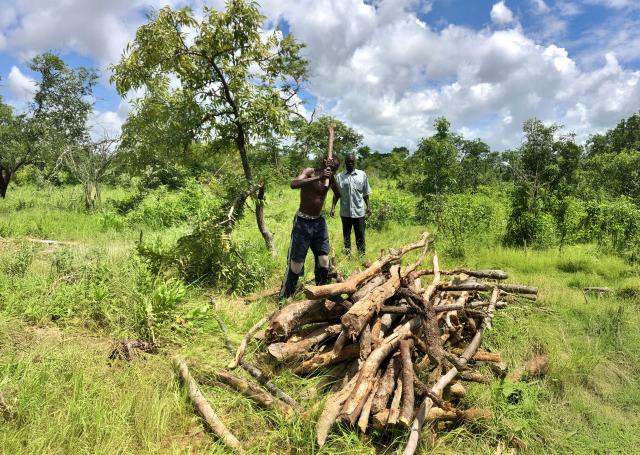In Burkina Faso, LuxDev supports sustainable development, access to quality education, and vocational training programmes.
LuxDev in Burkina Faso
Since 1996, Luxembourg’s cooperation with Burkina Faso has taken shape through key initiatives, such as the creation of the Ouagadougou Artisanal Village and the active engagement of numerous Luxembourgish NGOs. This collaboration led to the signing of a general cooperation agreement in 1999, marking the beginning of a structured partnership between the two countries. In 2003, LuxDev strengthened its presence by opening a country office in Burkina Faso.
Initially focused on handicrafts, healthcare, literacy, and environmental initiatives, LuxDev’s support has evolved into a more structured approach, aligning with national priorities and emphasising environmental sustainability, education, and vocational training.
In recent years, the Agency has shifted to a project-based approach, directly targeting end beneficiaries, particularly children and young job seekers.

Challenges in Burkina Faso: education, employment, and climate adaptation
Burkina Faso faces numerous development challenges.
A significant portion of the population lives in poverty, exacerbated by rapid population growth, urban expansion, and increasing pressure on natural ecosystems amid climate change.
Persistent insecurity, particularly in regions affected by terrorism, destabilises the socio-economic fabric, disrupts agriculture, and forces mass displacement of people toward major regional and national centres.

Access to quality education remains limited, especially in rural areas, while youth unemployment and underemployment present significant issues. Insufficient social infrastructure in rural areas and urban peripheries further slows development and strains existing services.
Moreover, sustainable management of natural resources – critical for a country reliant on agriculture – is under threat due to climate change, worsening land degradation and water scarcity.
Addressing these challenges requires strengthening basic social infrastructure, promoting education and vocational training, developing climate-resilient agricultural solutions, and enhancing local governance to improve living conditions and reduce poverty.
Gallery viewer
Our activities Burkina Faso
LuxDev’s interventions align with national development goals, addressing key challenges and fostering inclusive, sustainable growth.
-
Promoting sustainable development
We support sustainable resource management and land restoration. We also work with private sector actors to develop a green economy by encouraging eco-friendly business practices, such as solar energy adoption and waste management, while creating sustainable job opportunities.
-

Supporting education in emergency situations
In response to security challenges, we implement education projects designed to ensure continuous learning in crisis-affected areas. These initiatives provide tailored solutions for students and teachers in fragile contexts and support the rapid construction of durable school infrastructure in urban peripheries.
-
Strengthening vocational training
A strong focus is placed on expanding technical education and vocational training. The goal is to equip young people with relevant skills that match labour market needs, ensuring long-term employability. Digital tools play a key role in guiding young professionals toward the workforce. Thus, our interventions aim at facilitating access to career information, training, and coaching opportunities in collaboration with employment stakeholders.
Key figures in Burkina Faso
-
EUR 19,198,063
disbursed in Burkina Faso in 2025















